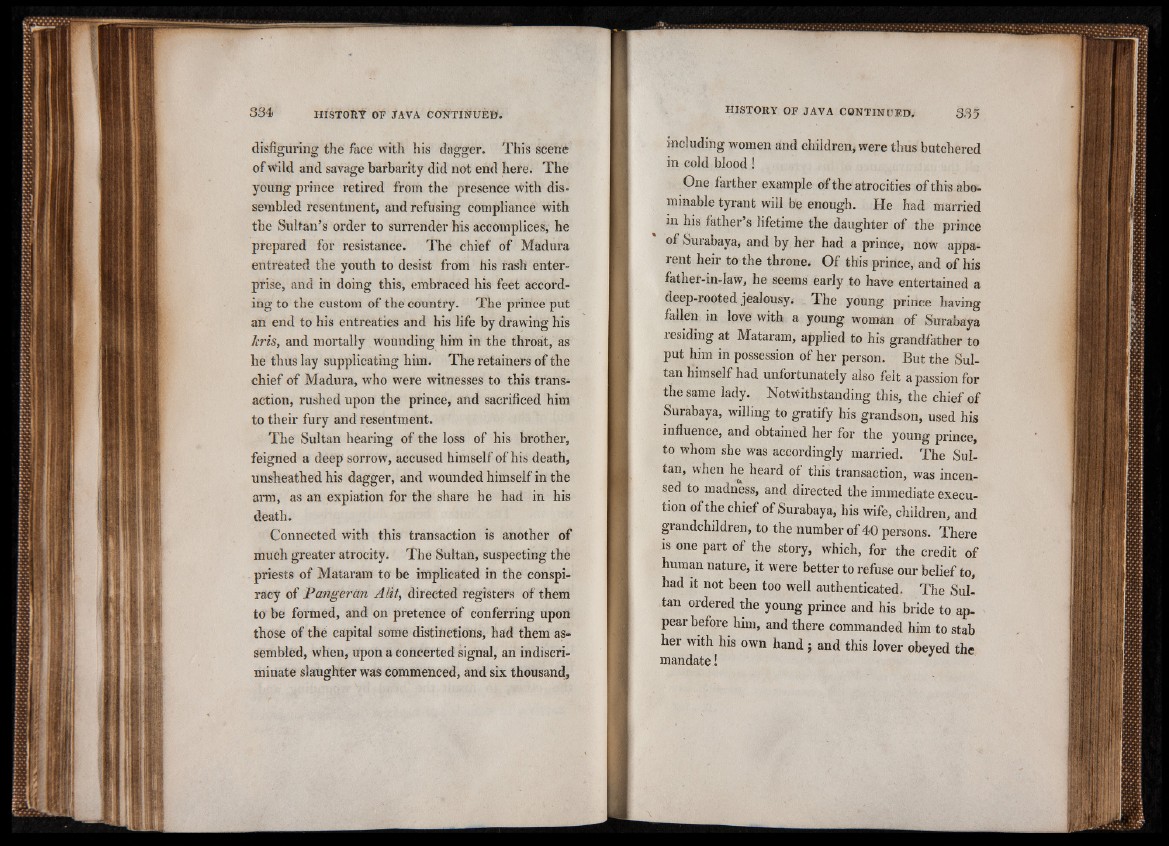
disfiguring the face with his dagger. This scene
of Wild and savage barbarity did not end here. The
young prince retired from the presence with dissembled
resentment, and refusing compliance with
the Sultan’s order to surrender his accomplices, he
prepared for resistance. The chief of Madura
entreated the youth to desist from his rash enterprise,
and in doing this, embraced his feet according
to the custom of the country. The prince put
an end to his entreaties and his life by drawing his
kris, and mortally wounding him in the throat, as
he thus lay supplicating him. The retainers of the
chief of Madura, who were witnesses to this transaction,
rushed upon the prince, and sacrificed him
to their fury and resentment.
The Sultan hearing of the loss of his brother,
feigned a deep sorrow, accused himself of his death,
unsheathed his dagger, and wounded himself in the
arm, as an expiation for the share he had in his
death.
Connected with this transaction is another of
much greater atrocity. The Sultan, suspecting the
priests of Mataram to be implicated in the conspiracy
of Panger an A lit, directed registers of them
to be formed, and on pretence of conferring upon
those of thé capital some distinctions, had them assembled,
when, upon a concerted signal, an indiscriminate
slaughter was commenced, and six thousand,
including women and children, were thus butchered
in cold blood!
One farther example of the atrocities of this abominable
tyrant will be enough. He had married
in his father’s lifetime the daughter of the prince
of Surabaya, and by her had a prince, now apparent
heir to the throne. Of this prince, and of his
father-in-law, he seems early to have entertained a
deep-rooted jealousy. The young prince having
fallen in love with a young woman of Surabaya
residing at Mataram, applied to his grandfather to
put him in possession of her person. But the Sultan
himself had unfortunately also felt a passion for
the same lady. Notwithstanding this, the chief of
Surabaya, willing to gratify his grandson, used his
influence, and obtained her for the young prince,
to whom she was accordingly married. The Sultan,
when he heard of this transaction, was incensed
to madness, and directed the immediate execution
of the chief of Surabaya, his wife, children, and
grandchildren, to the number of 40 persons. There
is one part of the story, which, for the credit of
human nature, it were better to refuse our belief to,
had it not been too well authenticated. The Sultan
ordered the young prince and his bride to appear
before him, and there commanded him to stab
her with his own hand j and this lover obeyed the
mandate I